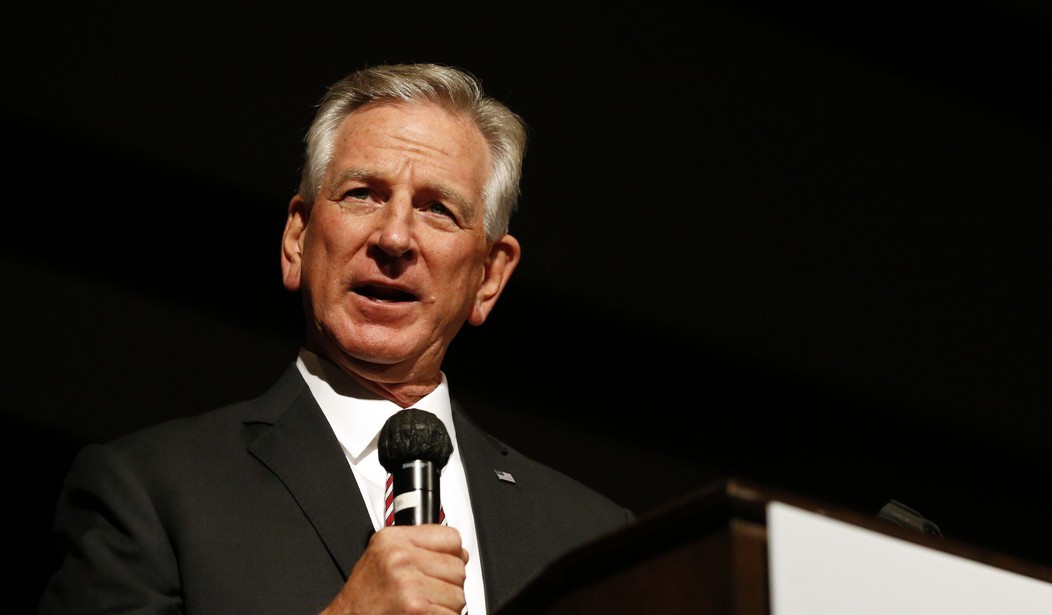Senate Republicans are preparing to vote on a Democratic resolution to end Alabama Sen. Tommy Tuberville's blockade of military promotions over the Pentagon's willingness to give travel vouchers to military personnel who want an abortion.
The issue pits populist anti-abortion lawmakers against defense hawks who claim that the blocking of 400 promotions is affecting our readiness and war-fighting capability.
Tuberville says he's been trying to reach some kind of compromise with the Pentagon, but the brass aren't budging on the issue. They may very well be under orders from the White House not to compromise, given the importance of the abortion issue to Democratic voters.
Democrats, along with some Republicans have fashioned a resolution that would change the Senate rules and allow a floor vote on the approximately 400 officers whose promotions have been blocked by Tuberville's blockade.
John Ullyot, a Republican strategist and former National Security Council spokesman during the Trump administration, said, “Republicans, especially Republicans on the Armed Services Committee, are feeling enormous pressure from their constituents on approving military promotions.”
“This is something that they’re hearing about from their constituents and there is a sense of urgency… to break this logjam,” he said.
But Ullyot acknowledges the difficulty in voting for the rule change given that the ability of one senator objecting to hold up a military nomination is one of the only weapons an individual senator has to affect Pentagon policy.
“It’s an issue of whether you want to take away one of the only tools that the Senate has to exert influence or exert pressure over the executive branch,” he said. “Just like filibuster reform, you’re for [changing procedural rules] when you’re in the majority and against it when you’re in the minority.”
Sen. Dan Sullivan (R-Alaska), who led an effort to pressure Tuberville to agree to waive procedural hurdles for a group of nominees early Thursday, warned that the backlog is beginning to severely impact U.S. military readiness.
And he warned the Senate standoff could leave the armed services without a whole generation of leaders.
“The backlog grows. Right now, when the Armed Services [Committee] report out the next batch of military officers, it will be 450 — one, two, three and four-star generals,” Sullivan argued on the Senate floor before attempting to get Tuberville to agree to voice votes on a few of the stalled nominees.
“This is a huge readiness challenge and huge morale challenge while our troops are literally in combat, literally under fire,” Sullivan warned.
Sens. Joni Ernst (R-Iowa) and Todd Young (R-Ind.) joined Sullivan and Graham after midnight Thursday in what they called a “joint operation” to put pressure on Tuberville, speaking on the floor until nearly 4 a.m. to highlight the biographies of the stranded nominee.
Ernst bristled when Lee used more than an hour of floor time to rebut requests to approve the nominees.
If a vote on the Democratic resolution to change the rules and allow for promotions to be considered en masse were held today, it would be close. But the longer Tuberville's blockade goes on, the more frustration builds up among Republicans, the more senators will change their minds and vote to consider the nominations.










Join the conversation as a VIP Member